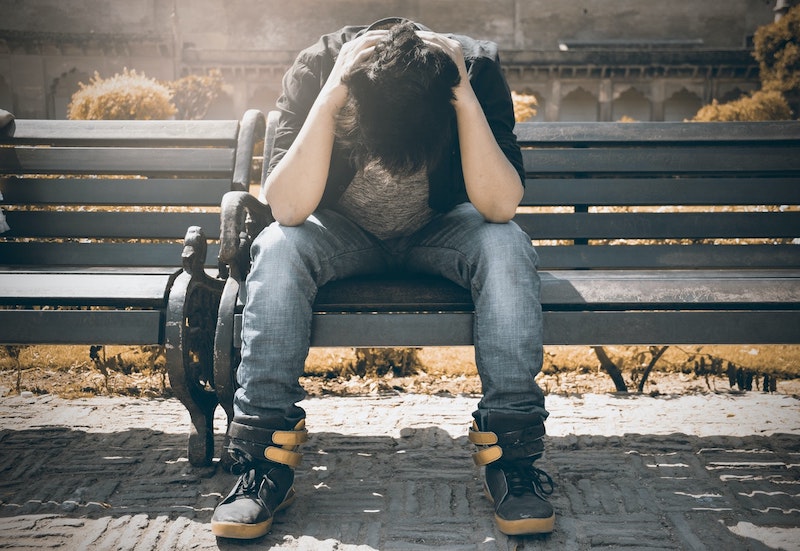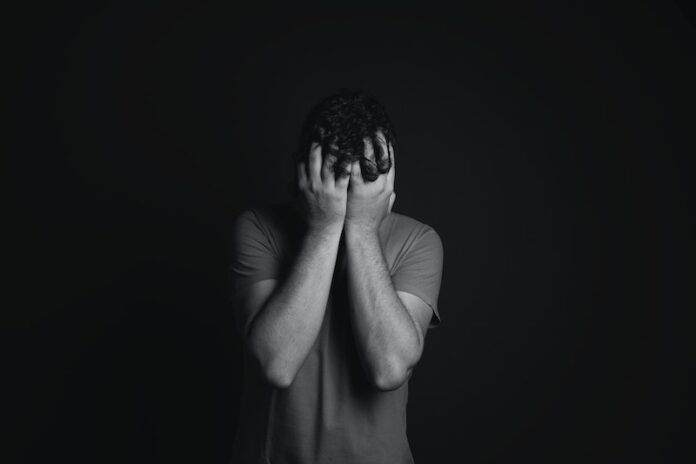Losing someone of something you care about can be devastating. Experiencing a significant loss, you may have different forms of confusing and difficult emotions, including anger, shock, and guilt. Often, people feel like their sadness may never go away.
Although the feelings of grief may be frightening, they are a normal reaction to a loss. It is important to allow yourself to feel the emotions as a necessary component of healing. Eventually, allowing yourself to experience grief can ultimately enrich and strengthen your life. Also, text therapy can help you cope with grief.
In this article, we explore how to deal with grief. We also define the stages and symptoms of grief and the ways to get support and professional help.
What Is Grief? What Situations Can Cause It?
Before we proceed, let us look at an important definition — what is grief?
Grief is a natural way people respond to a loss. It is the emotional suffering we undergo when we lose someone or something close to us. In many instances, the pain associated with loss can be devastating as people experience all spectrum of emotions, including guilt and overwhelming sadness.
Grief can interfere with normal daily functioning and physical health. It can make it challenging for you to eat, talk, or sleep well. Note that all these are normal reactions to a loss.
Although most people associate grief and loss with the death of a loved one, many different things can cause it:
- Divorce or end of a long-term relationship
- Loss of a job or source of income
- Loss of health
- Miscarriage
- Death of a pet
- Retirement
- End of a friendship
- Having to move away from home
- Loss of a cherished dream
- Serious illness of loved one
It does not matter how serious or subtle your loss is. What counts is that the feelings are personal to you, so you should not feel ashamed of them.
The object, person, or situation lost was important to you, and grief is a natural process. The most important to remember is that there are healthy ways to cope with grief allowing you to become stronger and move on with life.
Symptoms of Grief
Sometimes, dealing with grief can be extremely challenging. This is why it is important to understand the warning signs that may signal grief. Someone who is grieving is likely to display some of the following symptoms:
- Increased irritability
- Sore muscles
- Fear
- A feeling of detachment from reality
- Preoccupation with loss
- Sadness
- Fatigue
- Anger
- Loss of appetite
- Digestive problems
- Trouble falling asleep
- Inability to experience the joy

What Are the Stages of Grief?
The stages of grief are often misunderstood. It is important to understand that they signify the different ways in which people respond to loss. Also, there is no right or wrong way to respond to profound loss since grief is individual.
The stages of grief, which include denial, anger, bargaining, depression and acceptance, should help you learn how to cope with loss.
Here is a deeper explanation:
Denial
This is the first stage of the grieving process. It helps you to survive the loss. During this phase, a person sees the world as meaningless and overwhelming. This is often a state of shock and disbelief.
We go numb and wonder whether we can go on. As we try to get through each day following the tremendous loss, shock and denial allow us to cope and survive. During this stage, the person can pace out their feelings, only taking in what can be handled.
As you begin to recognize the reality of the loss and start to ask yourself questions, you are getting started towards your healing process.
As you accept the reality of the loss and start to ask yourself questions, you are unknowingly beginning the healing process. You are becoming stronger, and the denial is beginning to fade. But as you proceed, all the feelings you were denying begin to surface.
Anger
It is normal to feel anger following a profound loss. Even if the anger may seem endless, be willing to embrace it as a part of the healing process. Beneath all that anger is pain.
It is okay if you feel deserted and abandoned for the moment. In other words, anger is your way of trying to understand why the loss has happened or who is to blame for your suffering.
Bargaining
Before the loss, you may feel like you would do anything to have your loved one spared. People often bargain with the deity, promising never to do certain things.
After the loss of a loved one, bargaining often takes the form of waning the pain and suffering to be taken away. You may wish to go back in time and change things or wish for numbness until the pain passes.
Depression
After bargaining, people tend to move their attention to the present happening. You start to realize the inevitability of the loss and that there is nothing you can do to turn back time. Feelings of emptiness start to be present, and sadness takes over.
At this stage, people tend to withdraw from social events, feeling that they are too sad to do anything. You may feel like the depressive state may last forever.
Acceptance
The 5th stage in the grieving process is acceptance. Here, the person is acknowledging the need to keep living. It does not mean that you are okay with the loss. However, this stage means accepting the reality that the loved person or object is physically gone and there is a new reality.
You are readjusting to live with the new reality and getting to be at peace.
How to Deal with Grief: 4 Ways to Help Yourself
If you are experiencing any of the emotions highlighted in these stages of grief, it is important to understand that the feelings are natural, and you will heal with time.
That said, not everyone goes through all the 5 stages indicated here, and it is completely natural. Everyone reacts differently to a loss and adopts personal coping mechanisms.
Acknowledge Your Pain
The most important step in coping with immense loss is allowing yourself to experience the emotions and acknowledge your pain. Although it hurts, grieving is natural and healthy.
Don’t feel guilty or think that you need to get over it. There are no timelines for the grieving process. Allow yourself to react to the pain in ways that allow you to process and release emotions.
You also need to accept that grief can elicit many different and unexpected emotions.
Talk to Someone About the Loss
Talking about feelings can help us to deal with confusing and complex emotions resulting from loss. Talk about the loss with a friend or family member. They can help you to comprehend what happened.
Understand that avoiding your feelings can disrupt the healing process and result in isolation.
Take Care of Yourself and Your Loved Ones
We know that the grieving process can take a toll on your well-being. Although you have experienced a loss, life still goes on. You need to take good care of yourself by eating healthily, getting enough sleep, doing what you like, and setting healthy boundaries.
Maintain a Routine
Having a basic routine will help structure your life and make sure that all important tasks are accomplished.
For some people, it is often better to avoid making abrupt changes to their routine such as moving towns immediately after a loss. You may want to maintain some sense of security and normalcy and reduce any additional stress.

When to Seek Professional Help for Grief
Note that the grieving process will be unique to you, and there is no magic to getting rid of the pain. The emotional pain resulting from loss can sometimes push people to withdraw from others and retreat into isolation. However, having a social support system is important when it comes to healing from loss.
You will need the support of family and friends. However, if you do not have this support or need more help with learning how to cope with grief, you can benefit from professional counseling.
Grief therapy can also help you if you are experiencing very intense and prolonged grief. Don’t hesitate to seek professional help if the pain is preventing you from living a happy life.
Since people grieve differently, deciding when to seek therapy will depend on one’s personal circumstances. That said, consider help coping with grief if you have:
- An ongoing problem with health
- Inability to control yourself
- Sleeping problems
- Inability to work or take care of yourself
- Thoughts of suicide
- Feelings of worthlessness
- Prolonged stress
- Depression
H2: How Can Therapy Help You?
Grief counseling can help you understand why and how you are going through difficult emotions. A professional therapist will provide the necessary support, allowing you to cope with the loss and live a meaningful life.
The good news is that you don’t need to visit an office to see a therapist. Thanks to teletherapy platforms like Calmerry, you can now talk with a licensed therapist within the comfort of your home.
Kate has a B.S. in Psychology and an M.A. in Clinical Psychology from Pepperdine University and has been working in healthcare since 2017. She mainly treated depression, anxiety, eating disorders, trauma, grief, identity, relationship, and adjustment issues. Her clinical experience is focused on individual and group counseling. Follow Kate here: https://www.linkedin.com/in/kate-skurat-5348381b9/

